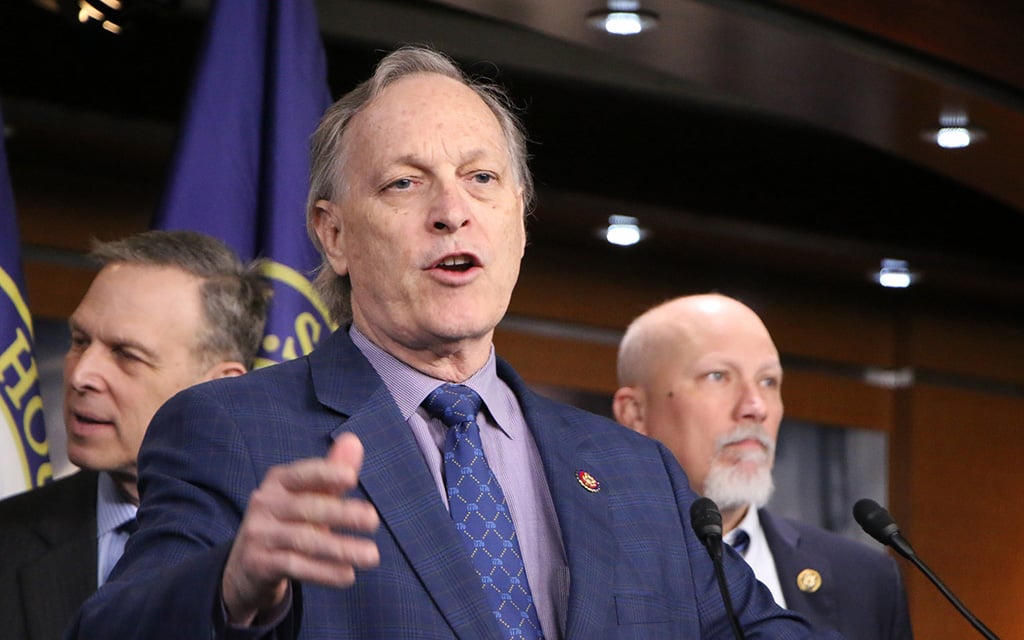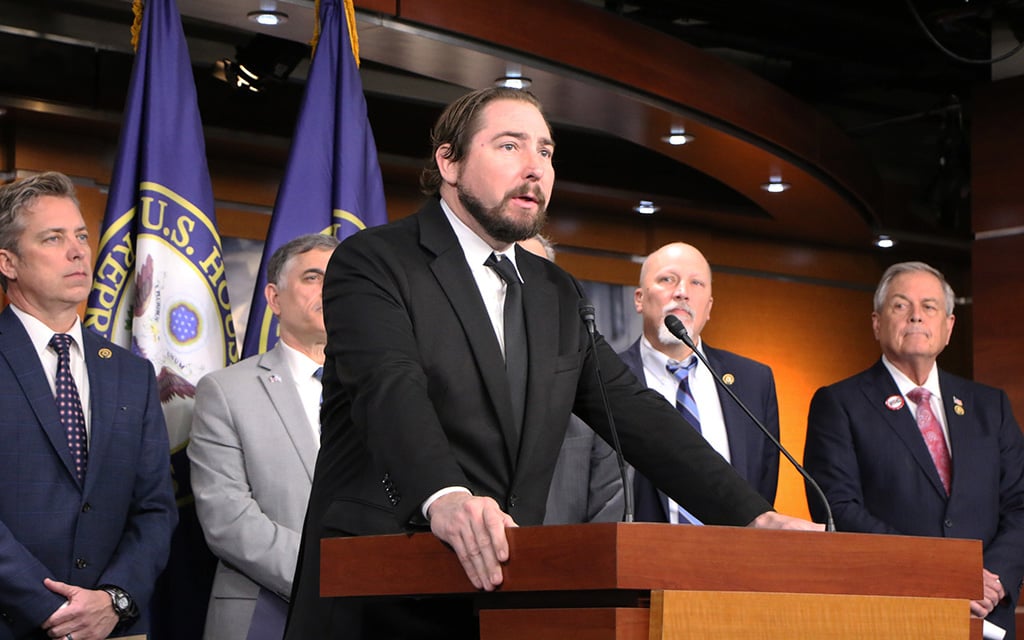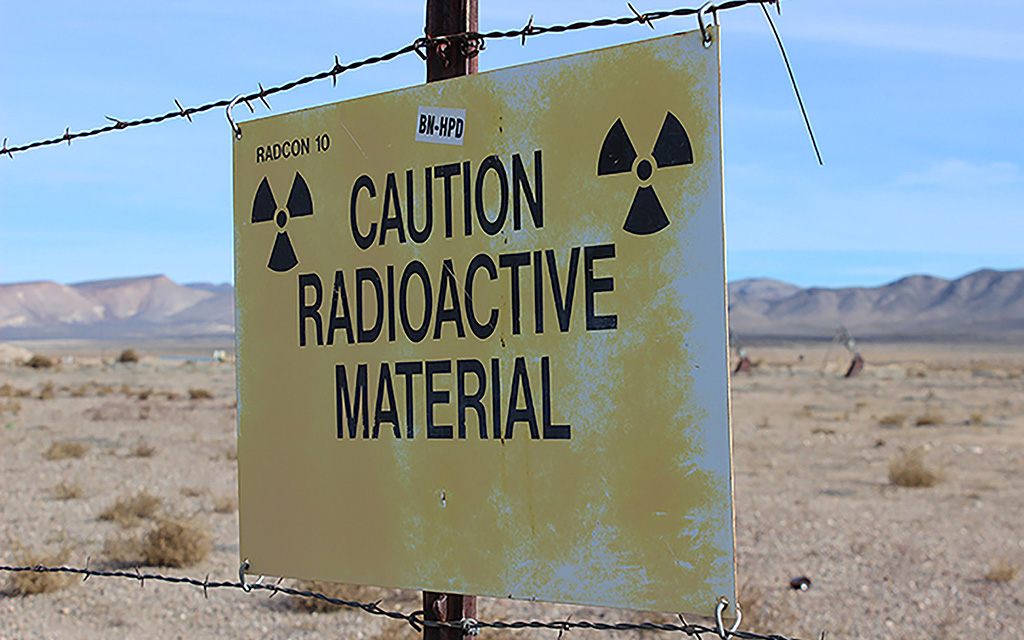WASHINGTON – Lawmakers have approved a $1.2 trillion package of budget bills that includes funding for 42,000 new beds in migrant detention facilities and for the hiring of an additional 22,000 Border Patrol agents.
The House voted 286-134 for the bill early Friday afternoon and the Senate approved it 74-24 shortly before 2 a.m. Saturday – stopping a government shutdown that was scheduled to take effect at midnight Friday if no budget had passed. President Joe Biden has said he will sign a bill as soon as Congress gets it to him.
The bill passed the House despite substantial opposition from Republicans, who said it was rushed through and contained what they called giveaways to Democrats. Rep. Eli Crane, R-Oro Valley, called the measure “a complete disaster.”
“One of the biggest problems in our country is our national debt of $34 trillion, right? Every year, you can add another 2 trillion on top of that, but that doesn’t cover the unfunded liabilities,” Crane said. He said unchecked federal spending will “lead to hyperinflation, maybe even a depression.”
But 101 Republicans joined most Democrats to pass the bill that Rep. Juan Ciscomani, R-Tucson, said “fulfills the most important role the government has, which is to protect its citizens,” and keeps the government open.
“Throughout this year’s appropriations process, my top priority was to keep the government working for the American people while striving for a responsible budget that funds Arizona’s priorities instead of government waste,” Ciscomani said in a statement after the vote.
Ciscomani was the only one of the state’s GOP House members to vote for that package, along with two of the three state’s Democratic representatives. Reps. Raul Grijalva, D-Tucson, and Paul Gosar, R-Bullhead City, did not vote.
The package rolled together six budget bills, for government agencies including Defense, State, Education, Health and Human Services and more. It is the second such package considered by Congress, which funded all other agencies two weeks ago.
Both bills followed months of “continuing resolutions” that kept the government operating with while lawmakers debated the budget for fiscal 2024 – which began on Oct. 1, 2023.
Friday’s package included everything from pay raises for service members to funding for teachers and cancer research. But Arizona lawmakers cited the border funding as one of the key elements.
The bill includes $5.1 billion for Immigration and Customs Enforcement’s Enforcement and Removal Operations, $650 million in grants to shelter migrants and $29.9 million to support the safe reunification of families who were separated at the border.
It also includes funding to add 18,000 beds in migrant detention facilities, bringing the total to 42,000, and to hire another 22,000 Border Patrol agents,
Rep. Greg Stanton, D-Phoenix, said the bill is “strong on border security and significantly increases the number of Border Patrol officers hired,” ensuring that Border Patrol is “fully staffed.”
He also said the bill includes provisions to help stop fentanyl from entering the country through U.S. ports of entry.

Rep. Andy Biggs, R-Gilbert, said House Speaker Mike Johnson did not fight Democrats hard enough in negotiations on the budget.(Photo by Ian McKinney/Cronkite News)
“Customs officials, who are the ones inspecting cargo for drugs and other cargo that may be illegal, will also get hundreds of millions of dollars to help better detect fentanyl,” Stanton said.
But Rep. Andy Biggs, R-Gilbert, said Republican leadership gave too much away in the deal, a failure he blamed House Speaker Mike Johnson, R-La.
“We’ve got a speaker who says, ‘This is all we can do. It’s tough. We don’t have enough (votes),'” Biggs said during a press conference with members of the conservative Freedom Caucus before Friday’s vote.
“Well, what I say to the speaker, and I’ve told him to his face … the American people are watching what we do,” Biggs said. “And you want to know something; if you surrender, you lose every time. But if you fight, you get a chance to win once in a while.”
Ciscomani said the final bill was not perfect, but that it was the “product of a divided government.”
“While it didn’t include every provision we wanted, the bill fulfills the most important role the government has, which is to protect its citizens,” Ciscomani said. “With this package, our federal government stays open and operating for our constituents, supports our troops, and provides for a strong national defense strategy.”


